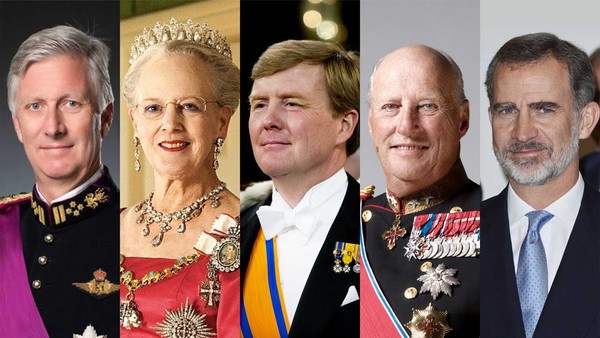The Role of Royals
The recent coronation of King Charles III reminds us that not all countries have the same form of government. In this Spotlight, we explore the path moving forward for Britain's monarchs and examine the different types of monarchies remaining across the world today.

On May 6, Charles III was officially crowned the King of the United Kingdom. The event at Westminster Abbey lasted two hours in high ceremonial fashion, paying homage to both the royal institution and Anglican church. Many personages made their appearance, including Prince William and Princess Catherine, UK’s Prime Minister Rishi Sunak, and US’s First Lady Jill Biden in replacement of her husband.
Though battered with internal scandals, Queen Elizabeth’s 70-year-long reign was a period of peace for Britain’s monarchs. One reason may have been the difficulty of ousting a monarch that has stood ever since Britain’s imperial days. However, in the more recent years, personal respect for the former queen may have factored in the continuation of the monarchy. Opinions on the queen have been positive throughout her reign. Queen Elizabeth frequently appeared among the top 10 most admired women in the world, according to Gallup Polls. This was despite the misbehavior of Prince Andrew and the controversy following Prince Harry’s withdrawal from the royal family.
But King Charles is not like his mother. For many years, his story was singularly characterized by his infidelity and subsequent divorce with Diana Spencer. This made him markedly unpopular, with observers wondering whether the crown might skip him and go directly to Prince William. Though time has eroded public disdain towards him, King Charles remains less popular even than his son according to YouGov ratings. Thus, in order to retain his position, King Charles will have to come face-to-face with declining support for the monarchy with little public admiration for his character. The National Centre for Social Research shows that the continuation of the monarchy is becoming less popular over time, with those responding that the monarchy is “very important” reaching an all-time low in 2022. In addition, younger people tend to show less favor toward the monarchy, presenting a challenge for the new king.
These challenges were already evident during the coronation. Originally, viewers of the coronation were called upon to pledge “true allegiance” to King Charles, reaffirming their loyalty to the monarchy. Public backlash ensued, calling the pledge “offensive” and “tone deaf”, leading to a change in its wording. On the day of the ceremony, anti-monarchist protestors booed the King’s crowning, chanting “Not my king.” More than 50 of these protestors were subsequently arrested. Among those arrested was Graham Smith, leader of an anti-monarchy group Republic, who claims that the monarchy stands against democratic principles and gives power to the government rather than the people. Meanwhile, the arrests brought condemnation from Yasmine Ahmed, UK director of the Human Rights Watch.
Even besides the diminishing popularity of the monarchy, King Charles inherits a different England from the one which greeted his mother 70 years ago. The Commonwealth is breaking down, and the 2021 UK Census showed that around 40% of Londoners were people of color, whose differences in cultural background may distance them psychologically from the royal family. The UK is also facing an economic crisis, with both interest rates and living costs hiking up. Thus, King Charles will need to bridge the gap between the changing country and the traditional nature of monarchy.
Currently 73 years old, King Charles does not present the image of change, but his reign will open a new chapter in Britain’s monarchy. Queen Elizabeth was the UK’s “most familiar enigma”, according to the BBC documentary The Diamond Queen. She was among the last of the royal family to be distinctly separate from celebrity, with little known about both her political views and her personality. On the other hand, King Charles, who remained Prince for decades, is known for being outspoken on his political views, and was even accused of trying to “influence government decisions”. His particular niche is climate policy, which was once an unpopular preoccupation but has turned into the centerpoint for a large portion of public discourse in recent years.
As the royal family faces challenges both within and without, the new king will need to adapt to the changing public sentiment and decide what kind of monarch he should be. Though muted by his responsibilities as head of state, King Charles’s personal opinions may also factor into the evolution of the role of the monarchy. Only time may tell what role the new king may play in the UK’s history.

